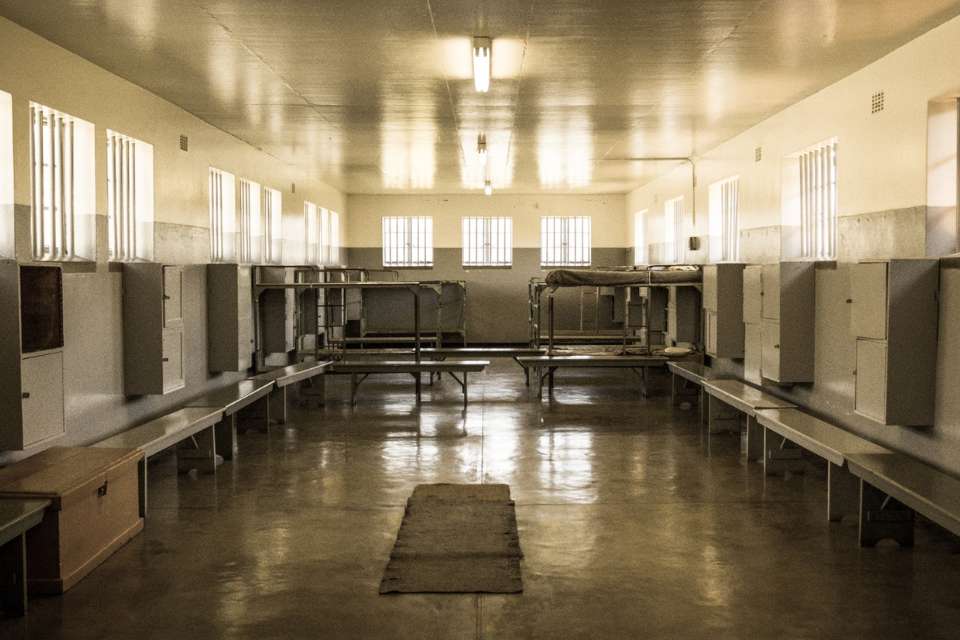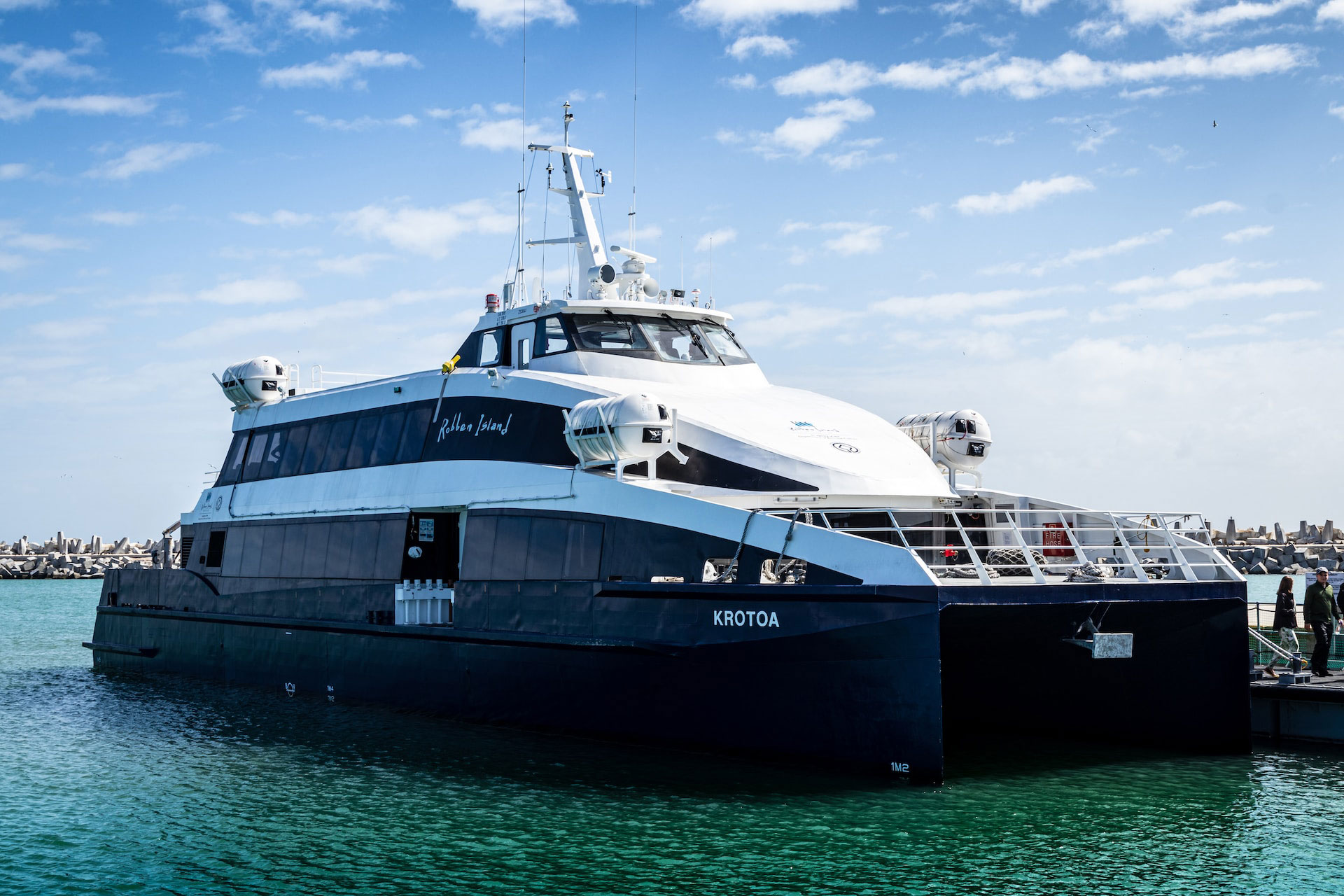Welcome to Robben Island, a small but historically significant island located in Table Bay off the coast of Cape Town, South Africa. This island is home to a prison that has played a crucial role in South African history, serving as a place of incarceration for political prisoners and convicted criminals.
Today, we invite you to join us on a journey of exploration as we delve into the rich history and compelling stories that surround Robben Island prison.
Key Takeaways:
- Robben Island is a historic island located off the coast of Cape Town, South Africa.
- The island’s prison was used to incarcerate political prisoners and convicted criminals.
- Robben Island holds significant importance in the context of South African history, particularly during the apartheid era.
- Visitors can explore the prison and other key sites on guided tours offered by the Robben Island Museum.
- This exploration offers insights into the harsh conditions and the struggles faced by those imprisoned on the island.
The History of Robben Island
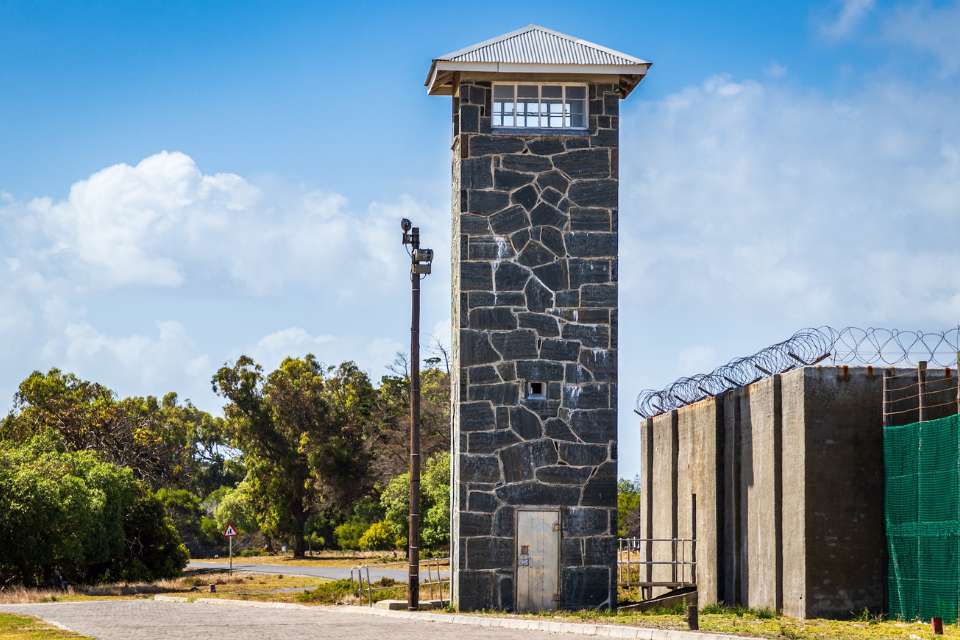
Robben Island has a long and complex history that spans several centuries. Originally used by Dutch settlers as a place of isolation, the island later served as a leper colony and an animal quarantine station. However, it is most famous for its role as a prison, particularly during the apartheid era in South Africa.
During this dark period of South African history, Robben Island became an apartheid prison, where political prisoners were held captive.
Notably, one of the most iconic figures to be imprisoned on the island was Nelson Mandela, a prominent anti-apartheid activist and the later President of South Africa.
Mandela endured 18 years of his imprisonment on Robben Island, which has solidified the island’s place in the annals of history.
The apartheid prison on Robben Island stands as a poignant reminder of the struggle against injustice and the resilience of those who fought for freedom and equality.
Through its walls, stories of political prisoners echo, leaving a lasting impact on South African history and the history of the global anti-apartheid movement.
Prison Life on Robben Island
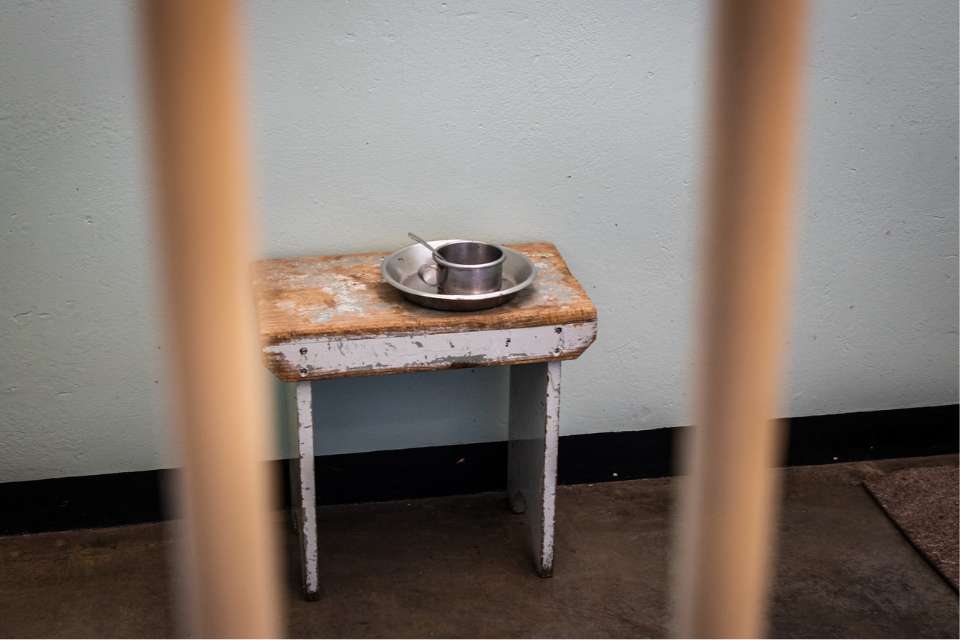
Life on Robben Island was a daily struggle for inmates. From the moment they arrived, prisoners faced a harsh and unforgiving environment. Both physical and psychological abuse were regular occurrences, taking a toll on their well-being.
The prison authorities provided poor-quality food, leaving the prisoners often hungry and malnourished. Education and recreational activities were denied, further isolating the inmates and stripping them of any sense of normalcy.
However, as time went on, conditions on Robben Island did see some improvements. Protests by prisoners and international pressure led to certain reforms within the prison system.
These efforts resulted in better treatment and increased access to basic amenities for the incarcerated individuals. Yet, it is important to recognize that despite these changes, Robben Island remained a place of punishment and isolation throughout its history.
The Role of Robben Island in South African Politics
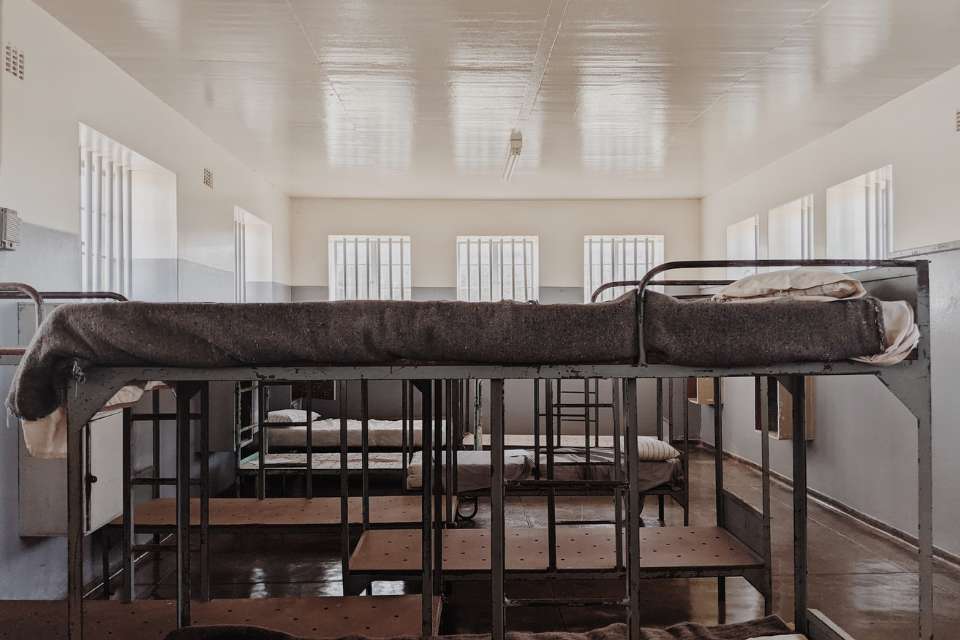
Robben Island played a significant role in shaping the political landscape of South Africa. It became an enduring symbol of resistance against apartheid, with numerous political activists and leaders finding themselves confined within its prison walls.
Among them was Nelson Mandela, whose imprisonment on Robben Island transformed him into a global icon and ignited the flames of the anti-apartheid movement within South Africa and beyond.
The isolation and oppression endured by Mandela and his fellow prisoners on Robben Island further fueled their political activism. The extreme conditions and harsh treatment they faced only strengthened their resolve to fight against the injustices of apartheid.
Despite the physical and psychological challenges, their spirit remained unbroken.
It was from within the confines of Robben Island that Mandela and others formulated their visions of a democratic South Africa, free from the shackles of racial discrimination.
The prison became a breeding ground for political thought, discussions, and strategies, giving birth to dreams of a more inclusive and equal society.
The legacy of Robben Island in South African politics cannot be overstated. Its history serves as a poignant reminder of the arduous journey towards freedom and equality, as well as the indomitable spirit of those who fought for justice.
The struggles endured on the island paved the way for the dismantling of apartheid and the birth of a new South Africa.
Today, Robben Island stands as a powerful testament to the triumph of the human spirit in the face of adversity. It serves as a cherished cultural heritage site, attracting visitors from around the world who seek to learn from its history and be inspired by the stories of those who sacrificed so much for a better future.
The Robben Island Museum

Today, Robben Island is home to the Robben Island Museum, a place dedicated to preserving the history and heritage of the island. At the museum, we offer guided tours that provide visitors with unique insights into the prison and its crucial role in South African history. Tours are led by former political prisoners, allowing you to gain a personal perspective on the island’s past.
When you visit the Robben Island Museum, you’ll have the opportunity to explore the prison, walk through the corridors where prisoners were held, and even visit Nelson Mandela’s former cell.
Our experienced guides will share their personal stories and anecdotes, offering a deeper understanding of the struggles faced by those who were imprisoned on the island.
Through our tours, you’ll also learn about the significance of Robben Island in South African politics, particularly during the apartheid era. The goal is to provide an educational and thought-provoking experience, shedding light on the resilience and determination of those who fought for justice and equality.
As you journey through the museum, you’ll have the chance to view historical artifacts, photographs, and exhibits that showcase the island’s rich history. By immersing yourself in this immersive experience, you’ll gain a profound appreciation for the impact Robben Island has had on the course of South African history.
Join a tour of the Robben Island Museum and be captivated by the stories of struggle, triumph, and resilience that this iconic location has to offer. Explore the past, understand the present, and embrace the lessons learned from this significant piece of South African heritage.
Exploring Robben Island
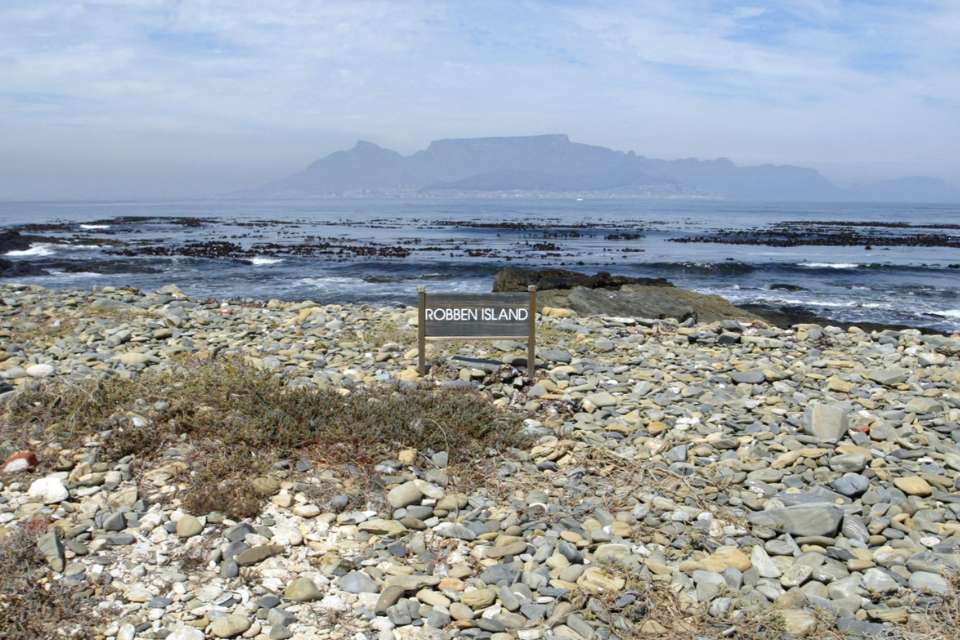
When you visit Robben Island, you’ll have the opportunity to explore various sites that hold significant historical importance. These include the iconic prison itself, where political prisoners were held captive, and where Nelson Mandela spent a substantial portion of his imprisonment.
Stepping into the prison cells offers a glimpse into the harsh conditions endured by those who fought against apartheid.
Another notable site to explore is Nelson Mandela’s cell. As you stand in the same space where he was confined for 18 years, you can’t help but be moved by the resilience and determination that defined his spirit.
The lime quarry is another site of importance on Robben Island. This is where Mandela and other prisoners performed arduous labor under the scorching sun. As you walk through the quarry, reflecting on the challenges they faced and the resilience they exhibited, you gain a deeper understanding of their struggles.
In addition to these historical sites, don’t miss the opportunity to visit the museum exhibition. Here, you can immerse yourself in the stories, artifacts, and photographs that weave together the narrative of Robben Island’s past.
From the personal belongings of former prisoners to the documentation of key moments in South African history, the exhibition is a comprehensive exploration of the island’s significance.
Robben Island tours provide a unique and comprehensive understanding of the island’s history. Led by knowledgeable guides, including former political prisoners themselves, these tours offer a personal and insightful perspective. By the end of your visit, you’ll have a deeper appreciation for the struggles faced and the resilience displayed by those who were imprisoned on Robben Island.
Conclusion
Robben Island is an invaluable piece of South African heritage that encapsulates the nation’s challenging journey towards freedom and equality. Through its history as a prison and the experiences of its former inmates, the island stands as a testament to the resilience and determination of the human spirit in the face of oppression.
As we explore the grounds of Robben Island, we are immersed in the stories of those who fought against apartheid and suffered unjust incarceration. These narratives serve as a powerful reminder of the importance of activism, the pursuit of justice, and the collective effort to dismantle systems of discrimination.
Designated as a UNESCO World Heritage Site, Robben Island serves as an enduring symbol of hope and triumph, attracting visitors from around the globe who seek to understand the impact of South Africa’s history.
By preserving and sharing the island’s past, we honor the sacrifices made by countless individuals and ensure that the lessons learned from this tumultuous era are never forgotten.
FAQ
Can I visit the prison on Robben Island?
Yes, the prison on Robben Island is open for tours. Visitors can explore the historical site and learn about its rich history.
What is the significance of Robben Island?
Robben Island played a significant role in South African politics, particularly during the apartheid era. It was used to incarcerate political prisoners and became a symbol of resistance against apartheid.
How long did Nelson Mandela spend in the prison on Robben Island?
Nelson Mandela spent 18 years of his imprisonment on Robben Island. His time on the island turned him into a global icon and inspired the anti-apartheid movement.
What can I see during a tour of Robben Island?
During the tour, visitors can explore various sites, including the prison itself, Nelson Mandela’s cell, the lime quarry where prisoners worked, and the museum exhibition.
Are the tours of Robben Island led by former political prisoners?
Yes, the guided tours of Robben Island are led by former political prisoners, offering a unique and personal perspective on the island’s past.

